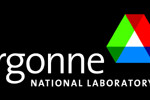On Thursday, Feb. 17, Ray Loy, director of the Argonne Training Program on Extreme-Scale Computing (ATPESC) at the Argonne Leadership Computing Facility, will hold a training session at 1 pm Central Time. Go here to register. ATPESC provides intensive, two-week training on the key skills, approaches and tools to design, implement and execute computational science […]
Exascale: ALCF and Intel to Host Aurora Learning Paths Series
The Argonne Leadership Computing Facility (ALCF) in partnership with Intel will host the ALCF Aurora Learning Paths learning seriesto explore use of oneAPI and Data Parallel C++ (DPC++), Intel’s open-source implementation of SYCL, to demonstrate methods to achieve performant, portable code across five platforms available on the Intel Devcloud. There are four modules within the […]
ALCF Announces Aurora Exascale Learning Paths Schedule
The Argonne Leadership Computing Facility has announced its Aurora Learning Paths training series, in partnership with Intel, designed to advance development of applications for ALCF’s upcoming exascale supercomputer. The sessions will be held online from 10-11 am Central Time on January 12, February 9, March 9 and March 16, 2022. The featured speaker will be […]
ALCF Deploys Testbed to Advance AI for Science
The Argonne Leadership Computing Facility (ALCF) is building a testbed comprised of advanced artificial intelligence (AI) platforms. Designed to explore the possibilities of high-performance computing (HPC) architectures, the ALCF AI Testbed will enable the facility and its user community to help define the role of AI accelerators in next-generation scientific machine learning. “The testbed combines a […]
Argonne Selects Altair Workload Manager for Polaris, Aurora
Simulation software company Altair has announced that Argonne National Laboratory will utilize Altair PBS Professional workload manager across the organization’s HPC systems at the Argonne Leadership Computing Facility (ALCF) – including the Polaris and Aurora supercomputers – to accelerate research in science and engineering. PBS Professional – which replaces the ALCF’s in-house Cobalt workload manager […]
Preparing for Exascale: Aurora to Drive Brain Map Construction
The U.S. Department of Energy’s Argonne National Laboratory will be home to one of the nation’s first exascale supercomputers when Aurora arrives in 2022. To prepare codes for the architecture and scale of the system, 15 research teams are taking part in the Aurora Early Science Program through the Argonne Leadership Computing Facility (ALCF), a […]
ALCF, IIT Team Develops Benchmark for Scientific Deep Learning Efficiency
The emergence of deep learning techniques has provided a new tool for accelerating scientific exploration and discoveries. A group of researchers from the Argonne Leadership Computing Facility (ALCF) and the Illinois Institute of Technology (IIT) set out to improve the efficiency of deep learning-driven research by developing a new benchmark, named DLIO, to investigate the […]
Registration Open for ALCF Simulation, Data and Learning Workshop Oct. 5-7
Registration is now open for the Argonne Leadership Computing Facility Simulation, Data, and Learning Workshop, October 5-7, 2021. The event is designed to improve the performance of simulation, data science and machine learning applications on ALCF systems. Participants will work with ALCF staff experts during hands-on sessions, learning how to use tools and frameworks to […]
Argonne Picks AMD EPYC CPUs for Polaris
Santa Clara — Aug. 30, 2021 — AMD today announced that the U.S. Department of Energy’s (DOE) Argonne National Laboratory has chosen AMD EPYC processors to power the Polaris supercomputer (see earlier coverage), which will prepare researchers for the forthcoming exascale HPC system at Argonne called Aurora. Polaris will use 2nd Gen EPYC processors and then upgrade to 3rd Gen […]
New York Power Authority Turn to ALCF’s Theta Supercomputer for Climate Change Planning
The largest state public power entity in the U.S., the New York Power Authority (NYPA), is addressing critical, long-term planning challenges by assessing how its ability to generate, transmit and deliver electricity may be affected by climate change. For the first time, NYPA is evaluating its comprehensive climate risk with the help of the U.S. Department […]









